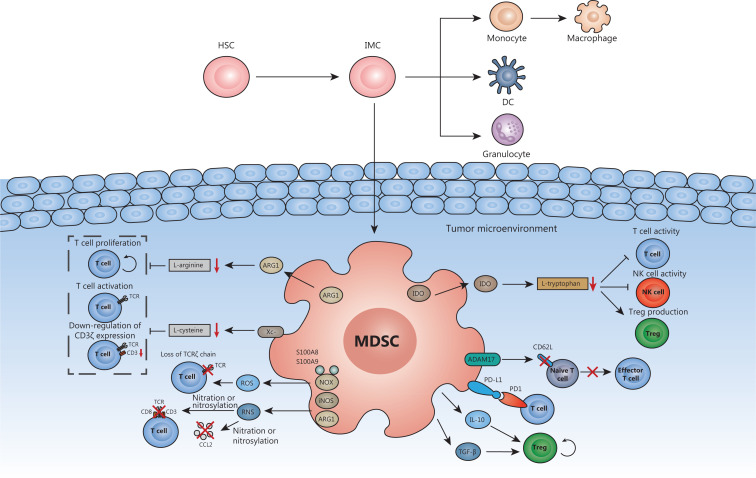Figure 1.
Mechanisms of MDSC-mediated immunosuppression. In healthy individuals, hematopoietic stem cells (HSCs) differentiate into immature myeloid cells (IMCs); IMCs can differentiate into granulocytes or monocytes, or further differentiate into mature macrophages or dendritic cells (DCs). In cancer patients, the maturation process of IMCs is disrupted, thus resulting in a dramatic expansion of the MDSC population. The activated MDSCs in the TME (i) express ARG1 and Xc−, thus depriving T cells of L-arginine and L-cysteine, which are essential for proliferation and activation; (ii) consume L-tryptophan by expressing IDO, thus inhibiting the activity of T cells and NK cells and increasing Treg production; (iii) release ROS and RNS, which mediate loss of the TCR ζ-chain and the nitration or nitrosylation of TCR signaling complex components and CCL2; (iv) express ADAM17, which cleaves CD62L, thereby preventing naive T cells from migrating to tumors or lymph nodes and subsequently forming effector T cells; (v) express PD-L1, which binds PD1 on T cells; and (vi) secrete IL-10 and TGF-β, which stimulate Treg activation and expansion.

